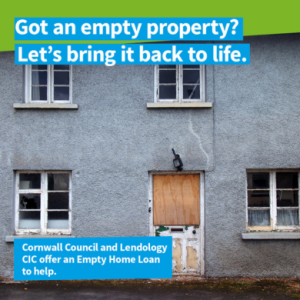In recent years, rental models have been gaining momentum across a broad range of industries. The shift from standard ownership to access-based consumption has been propelled by the rejection of over-consumption, growing emphasis on sustainability, and a societal shift towards cost-effectiveness and convenience.
In this blog, we delve into access-based consumption and explore the new place of rental models in various sectors of society.
Rental Models & Access-Based Consumption
Rental models and access-based consumption are very similar, as both involve the temporary use of goods or services without transferring legal ownership. However, rental models are usually mediated by a single entity, whereas access-based consumption often involves collaborative peer-to-peer sharing. This is typically facilitated and moderated through digital platforms.
Rental models are not a new concept, however, they have been made a priority and are rapidly growing in popularity across many industries. For example, while car rental companies have been documented as early as 1904, the current car-sharing scene is much more accessible. Services like Zipcar and Turo now make thousands of vehicles available throughout London and the UK that can be independently accessed by end-users.
The Growth in Rental Models
Rental models are high-quality, readily accessible, and often cheaper than traditional ownership methods, so it’s no surprise they are rapidly gaining popularity. However, there are additional factors that have facilitated the shift.
- Changing ideas surrounding ownership – Rental models offer consumers all of the benefits of ownership, such as accessibility, flexibility, and even access to high-end products without any of the hassle of ownership, such as maintenance and storage.
- Environmental impact – In a world utterly dominated by overconsumption, rental models offer a great alternative to ownership, particularly for items that would not gain sufficient use. Rental models are popular as they reduce waste and promote sustainability by extending the lifecycle of products and encouraging shared use.
A person who cycles once a year might benefit more from using Beyrl bikes, rather than purchasing a bike that would waste away in a shed all year. While this person is not using the Beyrl, it is available for other users.
- Convenience – The convenience of rental models definitely contributes to their success, though accessibility is necessary for a rental model to be convenient. For Example, in London, where it is particularly difficult and expensive to store a car, Zipcar offers a convenient solution, allowing users to drive without storing or owning a vehicle.
- Cost-savings – One of the greatest benefits of hire models, particularly when it comes to high-end products. With clothing rental companies like My Wardrobe HQ, users can access luxury brands at a fraction of the cost.
- Celebrity Endorsements & Awareness – Celebrity endorsements and interest in rental models have propelled public interest. Deborah Meaden’s open use of rental and subscription models, and interest in clothing rentals like “thelittleloop” are notable.
- Marketing – Initiatives focused on the accessibility of rental and hire models have greatly boosted their popularity and removed a barrier to entry. Individuals were previously deterred by the rental models due to the complexities of registration. However as user experience improves and the public becomes more aware of the simplicity of the apps, they are quickly become more widely embraced.
- Societal Changes – The stigma surrounding rentals has gradually changed. Where they used to be perceived as “dirty” and “cheap” which largely deterred users, they are now considered stylish and trendy.
Three Hire Models of Interest
Clothing – thelittleloop
A clothing model called thelittleloop offers a “shared wardrobe for kids”, allowing children to be dressed sustainably, in beautiful ethical brands. Renting with thelittleloop has changed the children’s shopping scene, offering sustainable, convenient and stylish options that circulate up to 5 times. Not only is this option sustainable, but it is also cost-effective.
Transport – Beryl Bikes
Beryl Bikes is a bike and scooter sharing scheme in the UK, allowing users to save money and reduce fumes and air pollution. Users simply download the Beryl app, find a bike using the app, unlock it, and then park it in a designated Beryl Bay or a safe location when finished. There are various payment models for users, depending on the frequency and duration of use.
Exhibitions – Quadrant2Design
Dorset-based company, Quadrant2Design offers a Free-Hire Pro plan for exhibitors. The service plan allows companies to invest in their graphic panels and hire the hardware from the company free of charge. While this exhibitor is not using the hardware, it is returned to the library of stock to be used by other exhibitors. This plan has made a significant sustainability impact in events across Europe.
Summing Up
The growing popularity of rental models reflects a significant shift in consumer behaviour and societal values. These access-based consumption and rental models provide practical solutions that align with sustainability, convenience, and cost-effectiveness. By offering the benefits of ownership without the associated burdens, rental services in various sectors, from clothing and transportation to exhibitions, are reshaping how people engage with and perceive products and services.





More Stories
Patch Unveils in Bobby’s Bournemouth: A Game-Changer for South Coast Entrepreneurs and Creatives
Bournemouth resident celebrated as finalist in Caremark’s 2024 ‘The Incredibles’ national awards
BWH Hotels shares a golden moment with Royal Chase Hotel